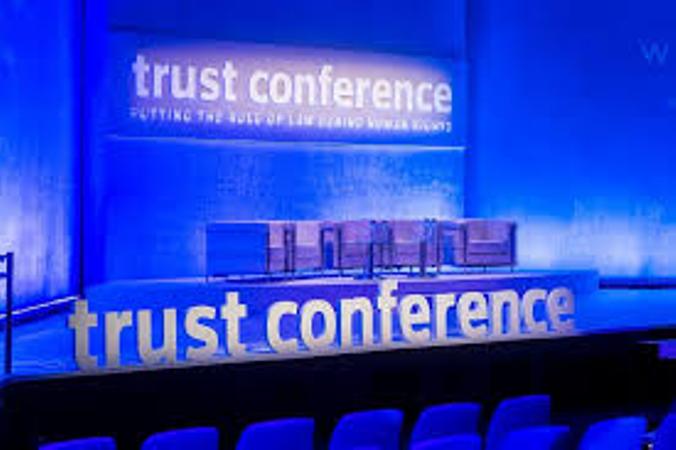MSF PRESIDENT DR JOANNE LIU AND SURVIVORS OF SLAVERY TO SPEAK AT CONFERENCE AT THE EUROPEAN PARLIAMENT
GLOBAL HUMAN RIGHTS FORUM _TRUST CONFERENCE_ HOSTED IN BRUSSELS ON JUNE 6
LONDON (MAY 31 2018) – The Thomson Reuters Foundation, the philanthropic arm of the world’s biggest news and information provider, will welcome global human rights and anti-trafficking leaders at a conference [1] focusing on how slavery is being addressed across the European Union, at the European Parliament, in Brussels, on JUNE 6.
Co-hosted by Vice President of the European Parliament Heidi Hautala, MEP, and Chair of the European Committee of International Trade Bernd Lange, MEP, delegates including government and business leaders, top legal and financial firms, philanthropists, NGOs and activists will attend the event – a spin-off of the Foundation’s annual human rights forum Trust Conference [2].
The forum will look at the reality of modern slavery – one of the world’s fastest-growing crimes – and the specific challenges it presents in Europe, from both a business and a legislative perspective. The evening event (6:00-9:00 PM) comprises several keynotes and two panels:
one featuring survivors of modern slavery and the other exploring the issue of forced labour in supply chains, and how businesses are taking steps to eradicate this. For more information, view our agenda here [1].
Speakers include: Médecins Sans Frontières President DR JOANNE LIU, Co-Founder and Executive Director of Yazda MURAD ISMAEL, UNHCR’s Special Envoy for the Situation in the Central Mediterranean VINCENT COCHETEL, and former UK Independent Anti-Slavery Commissioner KEVIN HYLAND.
Delegates will also hear stories from survivors of slavery who were trafficked – and then exploited – across Europe. They will share their experiences of being enslaved in FRANCE, THE NETHERLANDS AND THE UK.
“Trust Conference is the biggest forum on modern slavery, and is also an international human rights movement, committed to eradicating some of the worst human rights abuses in the world today,” _says Monique Villa, CEO of the Thomson Reuters Foundation [3] and Founder of the global event.
“This is the first time we have brought it to Brussels, significant because of the huge number of slaves who are trafficked through Europe or who remain hidden and exploited in European countries.
“Slavery is happening closer to home than you think. But thanks to the courage of survivors, activists, businesses and politicians, significant steps have been taken to eradicate the crime and stop the perpetrators.
Understanding how slavery is being addressed in the supply chains of big businesses, and through changes in legislation, is key to driving forward momentum in eradicating this global scourge.”_
“Slavery is forbidden everywhere, but the shocking fact is that there are more than 40 million slaves in the world today,’_ says Vice President of the European Parliament Heidi Hautala. “Slavery has not disappeared , only changed its form. Slavery flows into our homes through foods we eat and products we buy. It is an enormous human rights violation that we often fail to recognize.
“In the UK, companies have to prove that no slavery or human trafficking takes place in their supply chains. We need to take similar actions at the EU level.”
“As a Chair of the EP’s International Trade Committee, I am honoured to co-host this important conference on anti-slavery,” said Chair of the European Committee of International Trade Bernd Lange, MEP. “Fighting modern slavery is not an issue for human rights policy only, it also requires tremendous efforts to control and monitor global supply chains.
“A European trade policy based on values can be an important element of a joint strategy to fight modern slavery through trade agreements and trade legislation.”
Help keep news FREE for our readers
Supporting your local community newspaper/online news outlet is crucial now more than ever. If you believe in independent journalism, then consider making a valuable contribution by making a one-time or monthly donation. We operate in rural areas where providing unbiased news can be challenging. Read More About Supporting The West Wales Chronicle


























